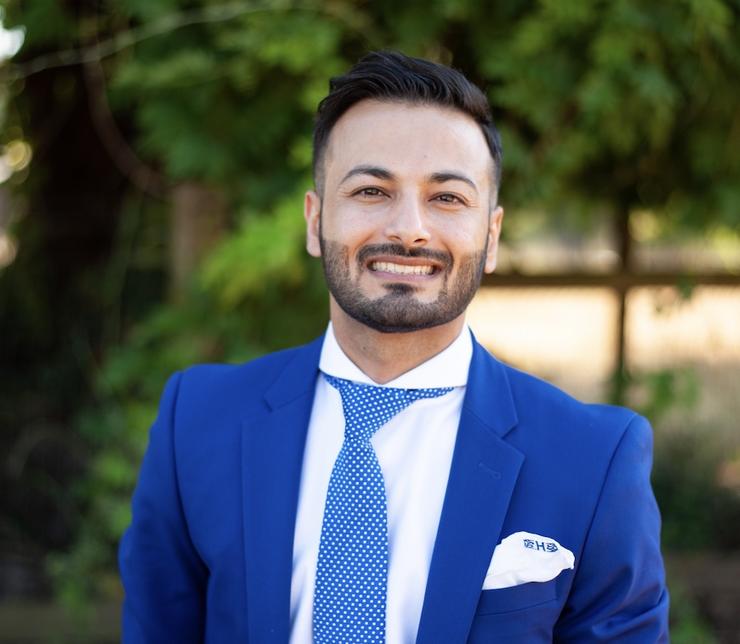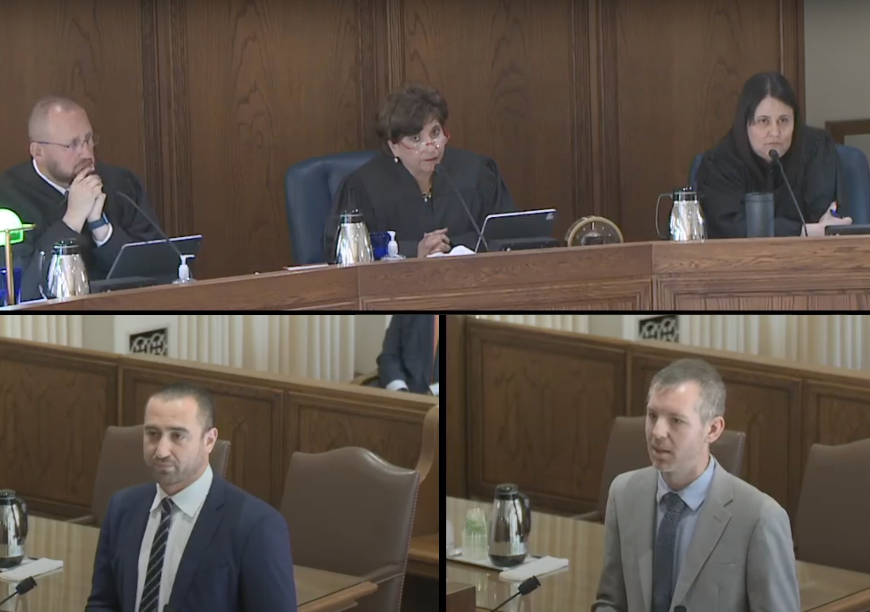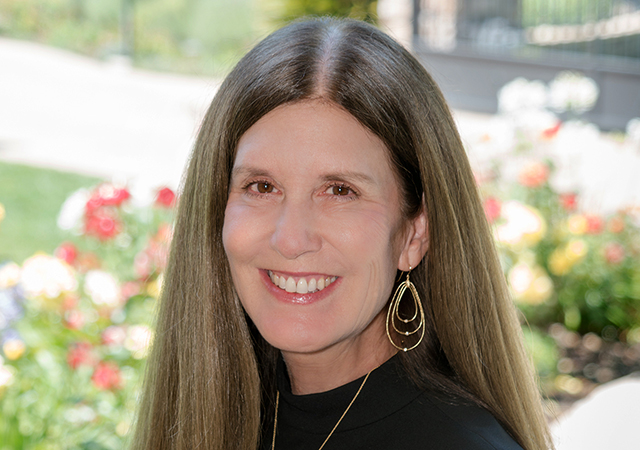Haydar Majeed: Dedicated. Driven. Determined to Make a Difference.

“I was born and raised by my parents in Iraq with eight brothers and sisters. By the time I graduated high school, the war in Iraq was in full swing and I knew that my linguistic and technical skills would be a valuable resource to both the U.S. and Iraqi forces, as they worked together to establish stability in the region. I wanted to make a difference and contribute in any way that I could to bring peace back to my country.”
Haydar Majeed, a recent graduate of USD’s Shiley-Marcos School of Engineering on-ground Masters in Cybersecurity Engineering and Technology, tells his compelling story of how he embarks on his personal journey with a dream for a better future — but does not travel his path alone.
At a young age, Majeed’s desire to make an impact on his country led him to become a cultural advisor and linguist for the United States Military right out of high school.
“I spoke three languages — Arabic, Farsi and English. I dealt with classified and unclassified materials and my job was to take decrypted language and translate it. I quickly made friends with military personnel from all over the United States and had the privilege to work alongside officers and high-ranking military officials,” explains Majeed. “I had to learn the necessary technical skills, such as data analysis and manipulation, in order to succeed at certain aspects of the job. This experience helped me grow and inspired me to see others doing big things. It made a huge impact on me.”
Due to his excellent track record of success, when his contract with the U.S. military was up, Majeed was given the opportunity to come to America.
“I could have easily stayed home with my dad’s successful career in the oil industry and my mother’s connection with her colleagues in the government. I had many different opportunities to pursue. But I wanted to create my own story. Education was important to me and my dreams were bigger than what the schools in Iraq offered. Coming to the United States was an opportunity I couldn’t refuse.”
In 2010, Majeed moved to Olympia, Washington and started working multiple jobs while taking classes to pursue a degree in criminology. He started making friends and fitting into a new American way of life.
“I loved America immediately and enjoyed living in the U.S. Despite missing my family and friends back home, I knew that there still was a great need to bridge the gap between the U.S. and Iraqi governments in order to create a lasting peace and stability in Iraq and the Middle Eastern region. I also knew that if I worked hard, I could utilize my experience, education and skills to help solve this problem through the use of technology.”
In 2015, Majeed moved to San Diego. After graduating with a bachelor’s degree in criminology and national securities studies from Brandman University, he made the pivotal choice to dive into digital and cybercrime. Leaving nothing to chance, he conducted research on the top-rated cybersecurity programs offered across the nation.
As fate would have it, Majeed crossed paths with Winnie Callahan in 2016, who, at the time, served as USD’s founding director of the Center for Cybersecurity Engineering and Technology.
“Director Callahan personally took me on a tour across campus as one of the first prospective students in the program. She introduced me to faculty and explained the hands-on engineering focus. It was inspiring.” Majeed continues, “I felt honored to be recruited by the director herself, and as I researched the university and the CyberSecurity Engineering Technology program, I knew that I had found the perfect avenue to continue my education and pursue my dream. I enrolled the next week.”
Majeed found the program to be both engaging and robust. He met many like-minded students who, together, were able to master the keys to creating digital infrastructures that will ultimately benefit individuals in the private sector, public and private companies and governments around the world.
“In one group project, we were challenged to attack a secure operating system by overfilling a buffer on the stack and the heap to achieve an attack known as stack smashing. I ended up taking it one step further and obtained root-privileges to control the entire system,” explains Majeed.
Adjunct Professor, Doug Magedman, a civilian engineer with the U.S. Naval Space and Warfare Systems Command (SPAWAR), explains where he worked with Majeed to identify a full assessment of a mock company.
“The students did an excellent job and produced an exceptional end product that was on par with what a real company would deliver. Majeed led his team. He is bright, articulate and driven.” Magedman continues, “He seeks not only to understand things, but how others look at things — he desires to know what you are thinking. This is an exceptional quality.”
Majeed’s educational experience at USD has changed his life completely. “Not only am I an expert at work and among my friends, but it has inspired me to do something greater with this knowledge. I don’t merely want to contribute to the puzzle, I want to create solutions and make a difference.”
Adjunct Professor Mark Heckman also saw the potential in Majeed, “Haydar was unique among the grad students in that he wants to know how things work and why they work. He also has an entrepreneurial bent and I expect will one-day create a cyber security company.”
Haydar Majeed has done just that.
During his studies at USD, he founded CRIPTIQ (the Cyber Readiness and Information Protection Technology of Iraq) to assist and support the Iraqi government in their mission to develop robust cyber security and information assurance operations that will protect both government and private sector entities and give Iraq a decisive advantage in their fight against cyber-crimes, corruption and economic instability. His wife, Madison, whom he met while living in Seattle, is his partner and serves as the Chief Operations Officer of the company.
“CRIPTIQ is all about equipping the right people and the right agencies with the technology that will enable them to establish peace, stability and prosperity, not only for the Iraqi people, but for the entire region,” says Majeed. “Iraq has a lot of money and opportunity, but limited technology. I want to connect and make a sincere collaboration between the two nations through security. I feel that this is the work that I was meant to do and that my education and experience will be the key to my success and the success of CRIPTIQ.”
What is next for the ambitious Haydar Majeed, you ask? He is currently a cyber security engineer for California Credit Union. His five-year goal is to attend Harvard University in Fall 2019 as a PhD student in computer science, while continuing his work with CRIPTIQ.
“Haydar is confident in his knowledge and this confidence gives him credibility,” adds Magedman. “He is a man with a vision, and he is not deviating from his plan. He has drive and determination. He knows where he wants to go and what he needs to do to get there.”
Haydar Majeed came to USD with a BS degree, hopes, dreams and a desire to succeed — and he got inspired.
“To move forward and go unnoticed would be a shame. USD is working hard to make the cybersecurity program a good experience and I want this program to succeed. I love the school, the program and the professors. I want to inspire applicants,” he confirms passionately. “My hope is for USD’s Masters in Cybersecurity Engineering and Technology program to be ranked #11 in the country, just like the engineering undergraduate program at USD.”
Majeed concludes with rock solid confidence, “I know that my wife, my daughter and my family back home are all proud of my education and the work that I am doing here in the United States, and I know that all of the projects and plans I have in mind for the future of Iraq will make them very proud as well.”
— Michelle Sztupkay



